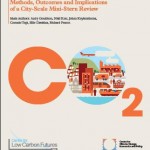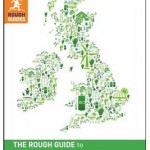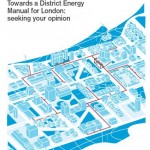Site search:
-
What’s new?
Energy for London Tags
Brent Buildings Camden Carbon Emissions CHP Cities Climate Adaptation Community Heating Community Initiatives Croydon Data DECC Decentralised Energy Distribution ECO Energy Costs Energy Efficiency Enfield FIT Fuel Poverty Funding Green Deal Hackney Haringey Housing Islington Lambeth Library Local Authorities Mayor Newham Ofgem Olympics Photovoltaics Planning RE:FIT RE:NEW Renewable Energy Retrofit Southwark Tower Hamlets Transport Waltham Forest Waste WestminsterEnergy Archives:
- February 2021 (1)
- January 2021 (15)
- December 2020 (15)
- November 2020 (9)
- October 2020 (3)
- August 2020 (5)
- July 2020 (3)
- June 2020 (4)
- April 2020 (10)
- March 2020 (5)
- February 2020 (2)
- January 2020 (3)
- October 2019 (1)
- September 2019 (4)
- August 2019 (2)
- July 2019 (1)
- August 2018 (1)
- November 2016 (8)
- October 2016 (8)
- September 2016 (2)
- August 2016 (8)
- July 2016 (14)
- April 2016 (12)
- March 2016 (16)
- February 2016 (8)
- January 2016 (4)
- December 2015 (1)
- November 2015 (1)
- October 2015 (16)
- September 2015 (3)
- June 2015 (1)
- May 2015 (1)
- April 2015 (1)
- March 2015 (1)
- February 2015 (1)
- January 2015 (1)
- December 2014 (18)
- November 2014 (4)
- August 2014 (8)
- July 2014 (7)
- June 2014 (25)
- May 2014 (8)
- April 2014 (4)
- March 2014 (12)
- February 2014 (7)
- January 2014 (13)
- December 2013 (11)
- November 2013 (15)
- October 2013 (15)
- September 2013 (18)
- August 2013 (5)
- July 2013 (20)
- June 2013 (33)
- May 2013 (8)
- April 2013 (16)
- March 2013 (25)
- February 2013 (14)
- January 2013 (20)
- December 2012 (23)
- November 2012 (23)
- October 2012 (25)
- September 2012 (14)
- July 2012 (12)
- June 2012 (43)
- May 2012 (20)
- April 2012 (8)
- March 2012 (40)
- February 2012 (39)
- January 2012 (40)
- December 2011 (22)
- November 2011 (40)
- October 2011 (33)
- September 2011 (48)
- August 2011 (40)
- July 2011 (58)
- June 2011 (41)
- May 2011 (80)
- April 2011 (38)
- March 2011 (33)
- February 2011 (25)
- January 2011 (24)
- December 2010 (3)
- November 2010 (7)
- October 2010 (6)
- September 2010 (7)
- August 2010 (1)
- July 2010 (2)
- June 2010 (4)
- May 2010 (1)
- March 2010 (3)
- February 2010 (3)
- December 2009 (5)
- November 2009 (2)
- October 2009 (3)
- July 2009 (3)
- June 2009 (1)
- April 2009 (1)
- March 2009 (1)
- February 2009 (1)
- January 2009 (1)
- December 2008 (2)
- October 2008 (1)
- September 2008 (1)
- July 2008 (1)
- March 2008 (2)
- January 2008 (2)
- October 2007 (1)
- September 2007 (3)
- July 2007 (1)
- March 2007 (1)
- February 2007 (3)
- November 2006 (3)
- August 2006 (1)
- February 2006 (1)
- May 2005 (1)
- February 2004 (1)
Library
Five London Community Energy projects awarded Government funding
16 January 2012: DECC today announced the first 82 local energy projects to win funding from the new £10m Local Energy Assessment Fund (LEAF). Five projects in London were selected:
- Brixton Energy
- Community Education Forum Fulham
- The HEET Project
- The Sustainable Home Survey Company CIC
- Transition Town Peckham
- Waterloo Community Development Group
Congratulations all!
Posted in Library, News, Uncategorized
Tagged Community Initiatives, DECC, Hammersmith and Fulham, Lambeth, Southwark
Leave a comment
The Economics of Low Carbon Cities
 10 January 2012: This report outlines a new method for a city-scale mini-Stern review evaluating the cost and carbon effectiveness of a wide range of existing low carbon options that could be applied in households, industry, commerce and transport. The research explores the scope for the deployment of these options at the city-scale, along with an analysis of the associated investment needs, financial returns, carbon savings and implications for the economy and employment. Download the report from www.lowcarbonfutures.org. Further information here.
10 January 2012: This report outlines a new method for a city-scale mini-Stern review evaluating the cost and carbon effectiveness of a wide range of existing low carbon options that could be applied in households, industry, commerce and transport. The research explores the scope for the deployment of these options at the city-scale, along with an analysis of the associated investment needs, financial returns, carbon savings and implications for the economy and employment. Download the report from www.lowcarbonfutures.org. Further information here.
Rough Guide to Community Energy
 January 2012: The Rough Guide to Community Energy is free to download and – as the blurb goes – is “Packed full of practical advice and inspiring case studies, it covers:
January 2012: The Rough Guide to Community Energy is free to download and – as the blurb goes – is “Packed full of practical advice and inspiring case studies, it covers:
- Local energy groups – how to set one up and keep its momentum going
- Types of project including solar, wind, hydro, biomass, CHP and energy efficiency
- Getting a project off the ground, from fundraising and planning to construction
- Real-world advice from successful groups all over the UK”
It does appear to be very much a ‘rough’ guide, leaving out lots of the complexities that are unfortunately all too prevalent in the UK – especially in relation to community based schemes – but a helpful addition none the less.
Monitoring the impact of London Plan Energy Policies
January 2012: The regional spatial strategy for London – the London Plan 2011 – contains a number of key sustainable energy and carbon requirements which developers must comply with when submitting planning applications for new developments in London. Chapter 5 of the London Plan specifically addresses London’s Response to Climate Change and sets out the following policy requirements:
- Policy 5.2 –Minimising carbon emissions – which sets out a range of CO2 emission targets for new developments which must be achieved through a hierarchy of ‘Be lean: use less energy; Be clean: supply energy efficiently and Be green: use renewable energy‘
- Policy 5.5 – Use Decentralised Energy Systems which amongst other issues requires boroughs to develop energy master plans for specific decentralised energy opportunities
- Policy 5.7 – Renewable Energy – where major development proposals should provide a reduction in expected emissions through the use of on-site renewable energy generation, where feasible.
The GLA yesterday published the latest in a series of reports providing analysis of CO2 emissions saved in relation to new developments as a result of the implementation of the London Plan’s policies.
The analysis demonstrated that substantial projected CO2 savings were secured through implementation of London Plan energy policies in 2010 (ie the the London policies will result in buildings – when completed – which will be less carbon intensive than requirements otherwise set out in national building regulations). Specifically:
- average CO2 savings of 33 per cent per development over and above a baseline of a 2006 Building Regulations Part L compliant development including unregulated energy
- a reduction of approximately 50 per cent in regulated CO2 emissions beyond the minimum requirements of 2006 Building Regulations (excluding unregulated energy)
- The largest CO2 reductions were due to energy efficiency (EE) and combined heat and power (CHP), with a smaller saving due to renewable energy
Read the full report here. Previous London Plan energy monitoring analysis can be seen here and here.
* ‘Unregulated energy’ relates to those areas not covered by Part L of the building regulations (which is concerned with energy and emissions). These include energy used by appliances, lifts, cooking etc.
Major London Renewable Energy Study Published
January 2012: As part of a series of DECC-funded regional renewable energy (RE) assessments, the GLA have just published a detailed study on the potential for renewable and low carbon energy in Greater London.
The report sets out results using DECC’s standardised renewable energy assessment methodology but has also developed second tailored methodology to take into account the highly urbanised nature of London, looking at opportunities to reduce CO2 emissions utilising low-carbon decentralised energy (DE) systems such as gas-fired combined heat and power (CHP) and the use of waste heat from power stations. The tailored methodology also gives significantly greater estimates of the technical potential for certain types of RE than the DECC methodology, such as commercial scale wind turbines and photovoltaics but – importantly – the greater use of DE displaces “80% of the thermal microgeneration RE sources… based on the assumption that policies which strongly favour DE over other energy sources are required to reach high levels of heat network deployment.”
The results of this study suggest that:
- Under the DECC methodology, up to 12% and 57% of London’s consumption of electricity and heating respectively can technically be met by RE sources from within Greater London
- However the tailored methodology- for reasons detailed above – estimates RE sources can technically supply up to 34% and 49% of electricity and heating respectively (the lower RE heating figure arising out the increased use of low carbon DE heat displacing some RE heating technologies in the ‘tailored’ methodology).
- The combined technical potential for RE and DE is up to 53% and 44% of London’s consumption of electricity and heating respectively.
- The technical potential of DE using large-scale heat networks is 20% of London’s energy supply
- It is estimated that around 450MW of waste heat capacity is available from existing power stations and energy from waste (EfW) plants in the London area
The London Decentralised Energy Capacity Study can be downloaded here and comprises three reports:
- Phase 1: Technical Assessment
- Phase 2: Deployment Potential
- Phase 3: Roadmap to Deployment
Some significant datasets lie behind the study and can be downloaded from the London Datastore here.
Posted in Data Store, Library, News
Tagged DECC, Decentralised Energy, Library, Mayor, Renewable Energy
Leave a comment
Towards a District Energy Manual for London
 January 2012: The Mayor has issued a discussion paper requesting comments around detailed design guidelines for district energy projects in London. The ‘District Energy Manual for London‘ will outline how such schemes are procured and designed and also how heat networks can grow and interconnect over time into an “integrated, efficient, secure and low carbon district energy network serving the whole of London.” It is hoped that the manual will become the standard reference for developers and heat network designers and that it will underpin energy masterplans and planning agreements across London where heat networks are envisaged.
January 2012: The Mayor has issued a discussion paper requesting comments around detailed design guidelines for district energy projects in London. The ‘District Energy Manual for London‘ will outline how such schemes are procured and designed and also how heat networks can grow and interconnect over time into an “integrated, efficient, secure and low carbon district energy network serving the whole of London.” It is hoped that the manual will become the standard reference for developers and heat network designers and that it will underpin energy masterplans and planning agreements across London where heat networks are envisaged.
The discussion document outlines the scope, intention and topics considered for the future London District Energy Manual and seeks comments in relation:
- Suggested design parameters for heat networks
- Suitable heat network operating temperatures
- The use of Heat Interface Units (HIUs)
- How to plan for future district heating networks; and also
- Best practice examples of district energy systems
The deadline for comments is 3 February 2012 with a final version of the manual planned for publication towards the end of 2012.
Posted in Library, News
Tagged Community Heating, Decentralised Energy, Mayor, Planning
Leave a comment
Sub-regional fuel poverty data for England, 2009
DECC 2011: DECC’s latest issue of Energy Trends includes an article on Sub-regional fuel poverty data for England, 2009. Estimates of fuel poverty at the local authority level were published by DECC last month and can be downloaded as an Excel spreadsheet here.
Posted in Data Store, Library
Leave a comment
Consumer Focus report on FIT installations
12 December 2011: A new Consumer Focus report1 – entitled ‘Keeping FiT’ – published today highlights the high overall level of satisfaction among consumers who have taken up the Feed-In Tariff (FiT) scheme. However it also shows some concerns about misleading sales practices, a lack of adequate information from some solar panel installers, and difficulties with the registration and payment process for the tariff itself. Read the full news release here.
‘Sydney beats London in race to be green’
December 2011: As part of an OECD study – Enabling Local Green Growth: Addressing Climate Change Effects on Employment and Local Development – four cities were studied in relation to the impacts of climate change and effects on local labour markets, focussing on the creation of jobs and the development of a skilled workforce to meet the needs of the greener economy. A press report on a workshop for the study highlighted that “More than half of Sydney companies have changed or modified their jobs to improve green performance, compared with only 3.5 per cent of London firms.”
The full OECD comparison report is as yet to be published (see above link for further information), however the detailed London study can be downloaded here.
State of the Environment – London fact sheets
December 2011: Environment Agency updated fact sheets “designed to provide local information on the state of the environment in each of the Capital’s boroughs.” Factsheets for each borough can be downloaded here.
RHI FAQ
December 2011: Ofgem question and answer factsheet providing assistance to applicants who intend to apply for the Renewable Heat Incentive (RHI) Scheme.
Haringey DE and retrofit studies
December 2011: As part of the work undertaken for the EST Local Carbon Framework’s pilot, Haringey – one of the 9 pilot areas (the only one in London however) – has developed five areas of study of interest to the borough looking at:
- Housing retrofit potential in North London – a detailed report for which can be downloaded here .
- Solar Power on Council buildings the outputs of which include:
- Green enterprise in the Upper Lee Valley – which produced the Upper Lee Valley low carbon economy report (PDF 6.2MB)
- Selling electricity from Combined Heat and Power Schemes – which looks at Haringey potentially acquiring a “Lite Supply Licence” which would allow a district heating operator to sell electricity at retail rates to consumers with fewer risks and complexities (report here)
- Producing guidance for Decentralised Energy Schemes – the purpose of which was to gain an understanding of the potential for district heating networks in the borough based on heat loads and likely capital costs and cash flows, and set up organisational structures to oversee a strategic approach to delivering DE networks.

